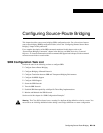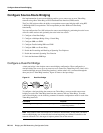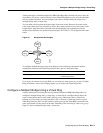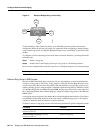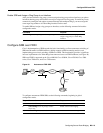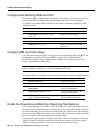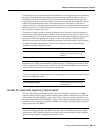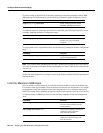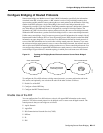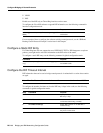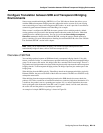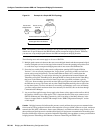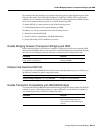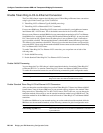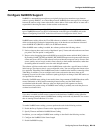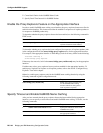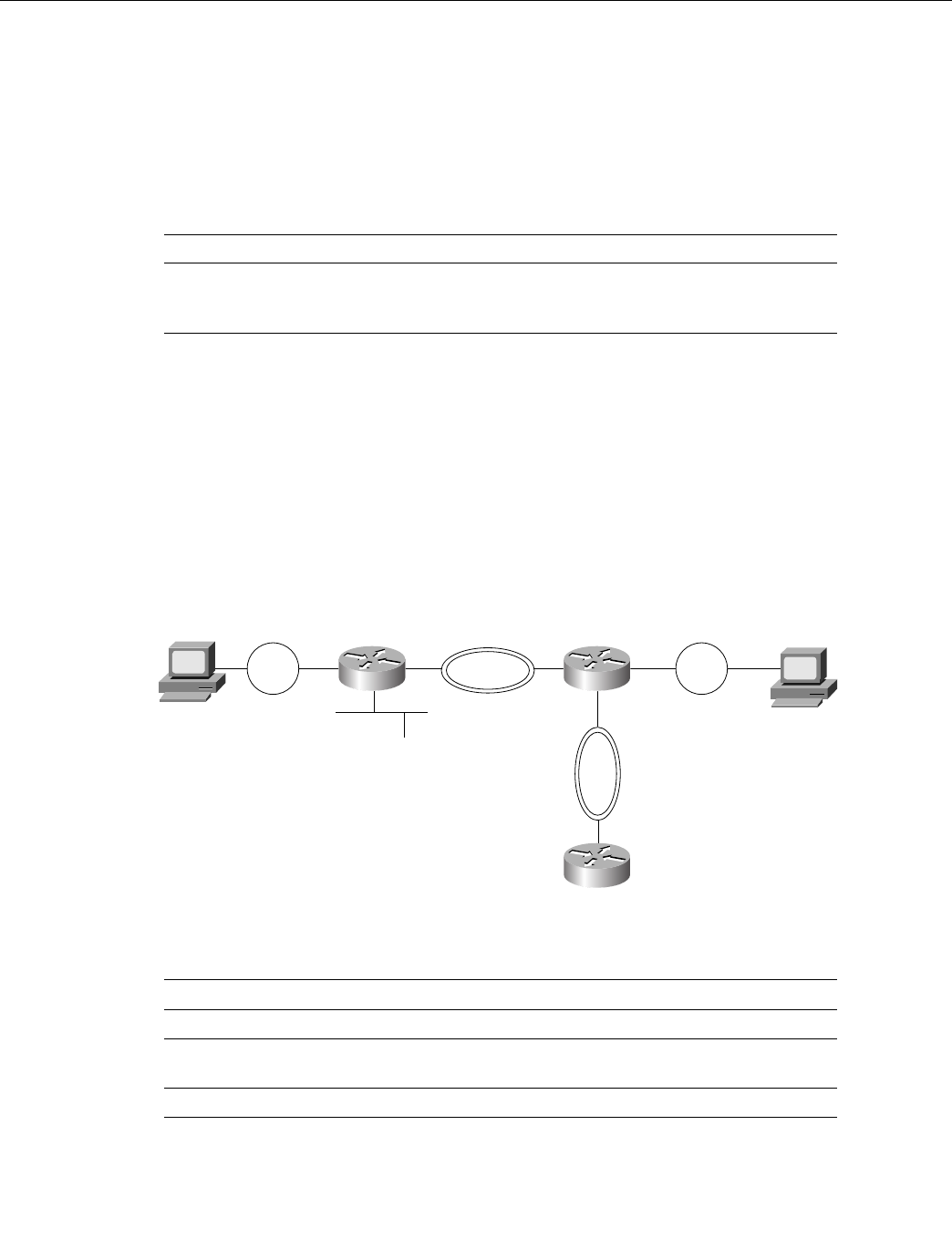
Configure SRB over FDDI
Configuring Source-Route Bridging BC-113
Enable SRB and Assign a Ring Group to an Interface
After you have defined a ring group, you must assign that ring group to those interfaces you plan to
include in that ring group. An interface can only be assigned to one ring group. To enable any-to-any
connectivity among the end stations connected through this multiport bridge, you must assign the
same target ring number to all Token Ring interfaces on the router.
To enable SRB and assign a ring group to an interface, use the following command in interface
configuration mode:
Configure SRB over FDDI
Cisco’s implementation of SRB expands the basic functionality to allow autonomous switching of
SRB network traffic for FDDI interfaces, adding counters to SRB accounting statistics, and
implementing process-level switching of SRB over FDDI. This functionality provides a significant
increase in performance for Token Rings interconnected across an FDDI backbone (see Figure 48).
SRB over FDDI is supported on the Cisco 4000-M, Cisco 4500-M, Cisco 4700-M, Cisco 7000
series, Cisco 7200 series, and Cisco 7500 routers.
Figure 48 Autonomous FDDI SRB
To configure autonomous FDDI SRB, use the following commands, beginning in global
configuration mode:
Command Purpose
source-bridge local-ring bridge-number target-ring Enable source-route bridging and
assign a ring group to a Token Ring
interface.
Step Command Purpose
1 interface fddi slot/port Configure an FDDI interface.
2 source-bridge local-ring bridge-number
target-ring
Enable source-route bridging.
3 source-bridge route-cache cbus Enable autonomous switching.
FDDI
Token
Ring
Token
Ring
Virtual
ring
S3227



